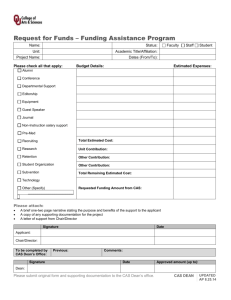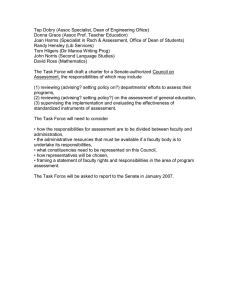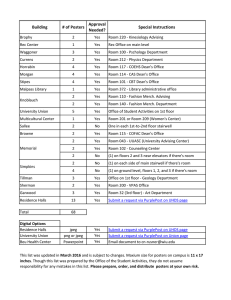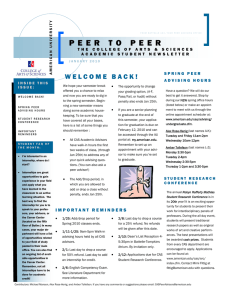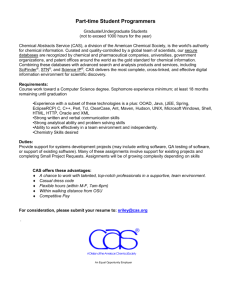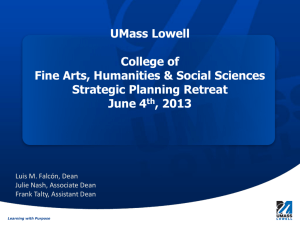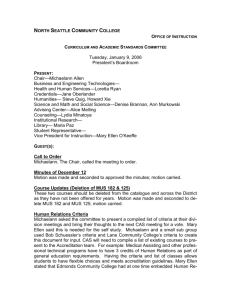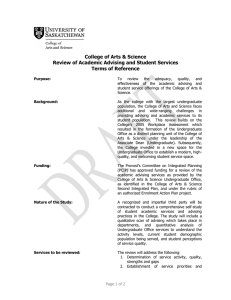PowerPoint: Implementing CAS Standards at
advertisement
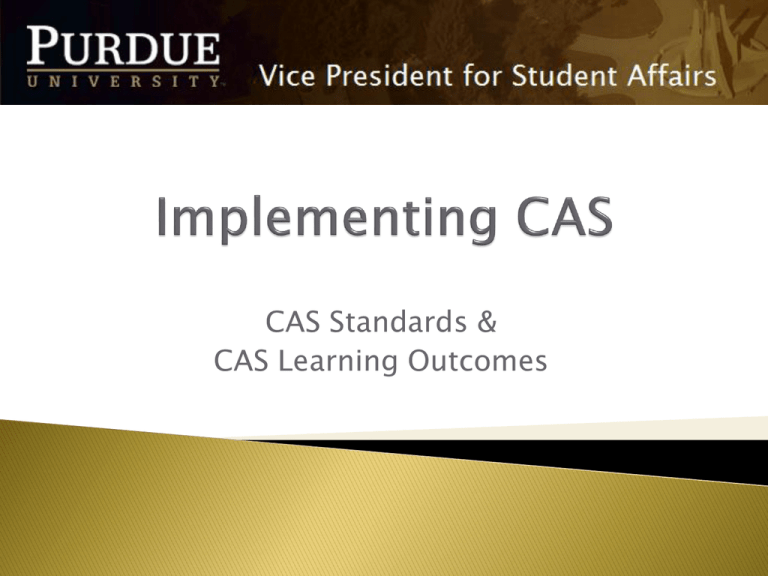
CAS Standards & CAS Learning Outcomes Tried and tested Endorsed by experts Used by peer universities Standards are specific and pertinent Active since 1979 40 member associations 100,000 professional members 41 sets of standards 1. 2. 3. 4. 5. 6. 7. Identify participants Compile evidence & gather expertise Review evidence Perform individual assessments Reconcile to group consensus Focus on Un-met Standards Develop & implement corrective measures Clinical health programs Health Promotion programs Counseling services PUSH Bands & Orchestras Campus Activities Programs Convocations ODoS / SAO PMO ROTC Student Conduct Dean of Students Academic Advising Center for Career Opportunities Student Conduct Dean of Students Housing & Food Services Academic Advising Center for Career Opportunities Academic Colleges Admissions STAR Contextual statement Introduction & instructions Rating examples The assessment Work forms for follow up 1. Mission 8. Diversity 2. Program 9. Organization & Management 3. Leadership 10. Campus Relations 4. Human Resources 11. Financial Resources 5. Ethics 12. Technology 6. Legal Responsibilities 13. Facilities & Equipment 7. Equity & Access 14. Assessment & Evaluation The standards ◦ “Assessment services must have adequate technology to support their mission.” Ratings ◦ “Assessment services has adequate technology to support its mission and goals.” ◦ A four-point scale: Not Met to Fully Met Questions ◦ “What evidence exists to confirm that technology is available for all who are served by the program?” 1. 2. Reconcile individual assessments with the group Identify which standards are not adequately met 1. 2. 3. 4. By one office By all offices State what isn’t working well enough, and why Develop & implement corrective plan If you already achieve the standard: No extra work Credit for your achievements Evidence of your compliance If you don’t attain the standard: A new focus for improvement
